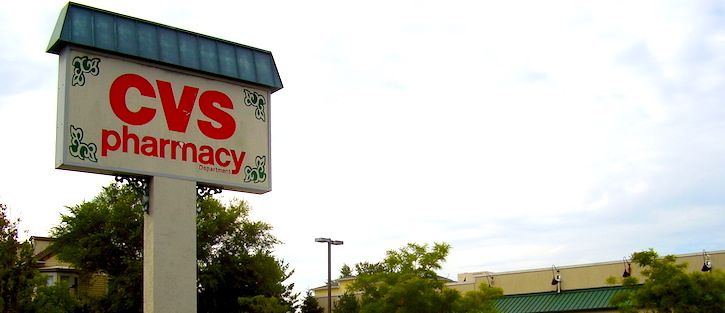CVS's Long March from Convenience Store to Healthcare Giant
The proposed Aetna takeover would put massive data and influence at its fingertips. It's just another step in CVS's long, deliberate march through healthcare.

(Photo courtesy Wikimedia Commons user WhisperToMe)
CVS began as a single drug store in Massachusetts less than 55 years ago. Yesterday, it announced that it has moved to buy Aetna, 1 of the 5 largest health insurance companies in the United States.
The company’s march from humble convenience store to vertically-integrated healthcare industry powerbroker has been long and deliberate. Many speculate that the choice to buy a health insurance company comes from the buzz around Amazon’s potential pharmaceutical play. The online retail giant reportedly is in talks to buy a pharmaceutical benefits manager (PBM).
The advantages of the proposed $69 billion merger would be manifold for both companies. It would extend Aetna’s reach, “positioning the combined company to dramatically further empower consumers,” as the insurer’s chairman and CEO Mark T. Bertolini said in a statement. Such a move would integrate the payment process, putting a company that fills millions of prescriptions under the same roof as another that reimburses for them.
The official announcement of the deal highlights this integration as an opportunity to leverage data analytics to glean insights and add value. Understanding two important elements of the healthcare equation would give the combined company a more holistic view of covered patients.
“Rather than feeling lost and confused, selected high risk patients discharged from the hospital, or their caregivers, will be able to stop at a health hub location to access services such as medication evaluations, home monitoring, and use of durable medical equipment,” the announcement states. Data sharing, it says, would lead to improved patient health and lower costs.
For CVS, the deal continues a growth trajectory that includes health initiatives, localized clinics, and other key acquisitions.
In 2000, some CVS locations in Minnesota began operating walk-in health clinics called QuickMedX centers. In 2003, they were renamed MinuteClinic, and locations took off: Today, CVS has over 1,100 of them nationwide, with services expanding to include diagnosis of minor illnesses, injuries, and skin conditions alongside the administration of vaccines and some prescriptions.
In 2010, CVS spent $1.25 billion to acquire Universal American Inc.’s Medicare Part D prescription business, more than doubling its access to that market. At the time, the president of CVS’s Caremark PBM called the move evidence of the company’s desire to position itself as “a significant player in one of the nation's fastest-growing segments of the Pharmacy Benefit Management industry.”
In September 2014, CVS doubled down on its healthcare aims and ceased selling cigarettes. When it announced the decision that February, the company sounded very much like a healthcare organization rather than a retail store: “As the delivery of health care evolves with an emphasis on better health outcomes, reducing chronic disease and controlling costs…tobacco products have no place in a setting where health care is delivered.”
The company made 2 multi-billion dollar deals in 2015 that further signaled its intentions. In the first, it bought Omnicare, Inc. for $12.7 billion. Omnicare provides pharmaceuticals to long-term care and assisted living facilities, which order large amounts of expensive specialty drugs. That move increased CVS’s access to the growing population of Americans aged 65 or older.
Also that year, the company agreed to pay $1.9 billion to take over Target’s 1,600+ retail pharmacies, rebranding them and operating them as stores-within-stores. Earlier this year, Kaiser Permanente expanded a relationship with Target to operate Kaiser Permanente-branded health clinics within Target stores in California. That deal included considerations for CVS’s MinuteClinics and in-store pharmacies. Kaiser Permanente’s insurance network has nearly 12 million members, and it remains to be seen if the announced Aetna merger would impact arrangements in those locations.
For Aetna, the CVS merger can be seen as a way to stay competitive. The few insurers larger than it already have hands in the pharmacy benefits space: UnitedHealth Group, the nation’s largest insurer, has a pharmacy benefits operation while Anthem, the second-largest, is working to start one.
A deal of this size still needs to be approved by federal regulators. A proposed merger between Aetna and fellow insurer Humana was abandoned earlier this year after the Justice Department sued. That was under the Obama administration: It is unknown how the current president’s Justice Department will interpret and enforce antitrust statutes, but since CVS Health and Aetna operate in different capacities, even in the same industry, the deal may be more likely to stand.
Some speculate that the merger could spur other retail pharmacies to acquire insurers in order to keep pace.